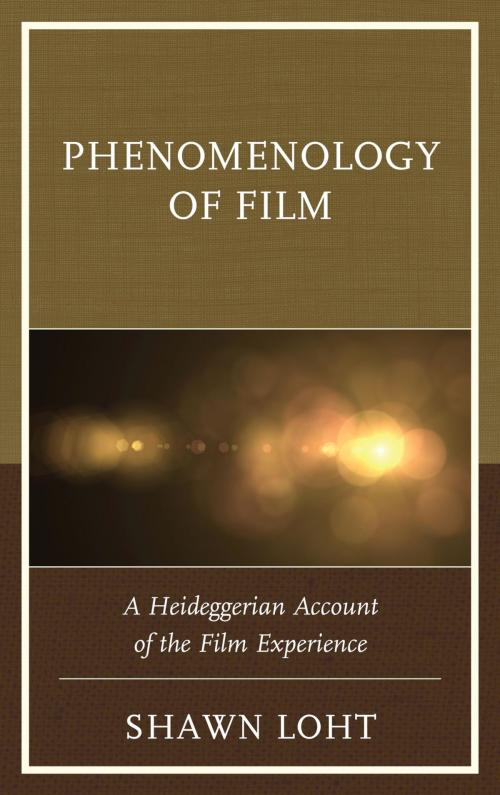Phenomenology of Film
A Heideggerian Account of the Film Experience
Nonfiction, Religion & Spirituality, Philosophy, Phenomenology, Art & Architecture, General Art, Art Technique| Author: | Shawn Loht | ISBN: | 9781498519038 |
| Publisher: | Lexington Books | Publication: | August 25, 2017 |
| Imprint: | Lexington Books | Language: | English |
| Author: | Shawn Loht |
| ISBN: | 9781498519038 |
| Publisher: | Lexington Books |
| Publication: | August 25, 2017 |
| Imprint: | Lexington Books |
| Language: | English |
Phenomenology of Film: A Heideggerian Account of the Film Experience uses the philosophy of Martin Heidegger as a framework for addressing key issues in the philosophy of film. This study grapples with the question of how we can reconcile film as a popular entertainment medium with Heidegger’s own various critiques of popular media and culture throughout his career. Shawn Loht also explores topics such as the ontology of film and moving images; the phenomenological character of the viewer experience; film conceived as an art medium; and the function of films as vehicles for philosophical thought. He further discusses important concepts from Heidegger’s philosophy--Dasein, existentiality, world, art and poetry, and the nature of philosophy. The first four chapters take up these issues from a theoretical perspective. The remaining chapters provide robust application of the theoretical material to the films of three contemporary filmmakers: Terrence Malick, Michael Haneke, and David Gordon Green.
As the first single-author monograph that takes up Heidegger’s relevance to film, Phenomenology of Film will be of particular interest to philosophers of film and specialists of film and media studies working in the intersection of phenomenology and film or phenomenological approaches to issues in popular culture.
Phenomenology of Film: A Heideggerian Account of the Film Experience uses the philosophy of Martin Heidegger as a framework for addressing key issues in the philosophy of film. This study grapples with the question of how we can reconcile film as a popular entertainment medium with Heidegger’s own various critiques of popular media and culture throughout his career. Shawn Loht also explores topics such as the ontology of film and moving images; the phenomenological character of the viewer experience; film conceived as an art medium; and the function of films as vehicles for philosophical thought. He further discusses important concepts from Heidegger’s philosophy--Dasein, existentiality, world, art and poetry, and the nature of philosophy. The first four chapters take up these issues from a theoretical perspective. The remaining chapters provide robust application of the theoretical material to the films of three contemporary filmmakers: Terrence Malick, Michael Haneke, and David Gordon Green.
As the first single-author monograph that takes up Heidegger’s relevance to film, Phenomenology of Film will be of particular interest to philosophers of film and specialists of film and media studies working in the intersection of phenomenology and film or phenomenological approaches to issues in popular culture.















